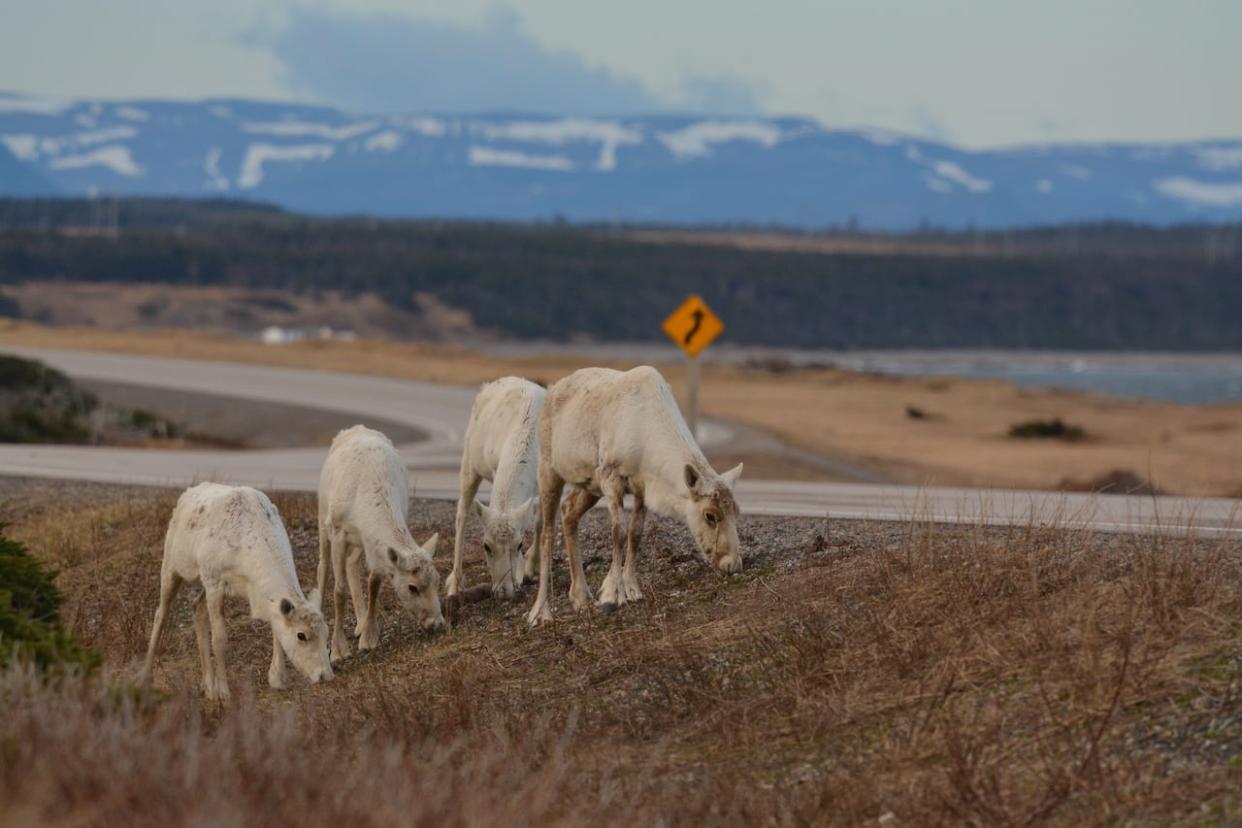More caribou are out and about in Gros Morne National Park this spring, and heading for the roads


It's not uncommon for caribou to feed near roads in Gros Morne National Park, but Parks Canada says they're seeing larger herds than usual this year. (Submitted by Darroch Whitaker)
Parks Canada is warning drivers in Gros Morne National Park that more caribou are being spotted around roads than usual this spring.
Ecologist Darroch Whitaker told CBC News on Friday it's not uncommon for caribou to head toward the coast and highways this time of year in search of vegetation but they're being seen in larger herds along Route 430 than in previous years.
"We've seen groups of up to about 40 or 50 caribou at a time," Whitaker said. "We're seeing them especially in a few key areas in the park that are a good habitat for them … in Gulls Marsh up near St. Paul's, and then also Trout River Gulch."
Whitaker said caribou can add a layer of surprise when drivers encounter them, as they often behave differently from other animals like moose.
"They're travelling in groups and there can often be several of them together in the same area. You may notice one but not realize that there's several more just around the turn," he said.
"Their instinct when they feel threatened is to go to an open area so they can run quickly. And for them, that's often the road. So when they see a vehicle coming and they feel threatened, they'll often jump up onto the road instead of running off into the bushes."
Whitaker said it's important to slow down as soon as you spot a caribou and be ready to stop at any time.
Download our free CBC News app to sign up for push alerts for CBC Newfoundland and Labrador. Click here to visit our landing page.


